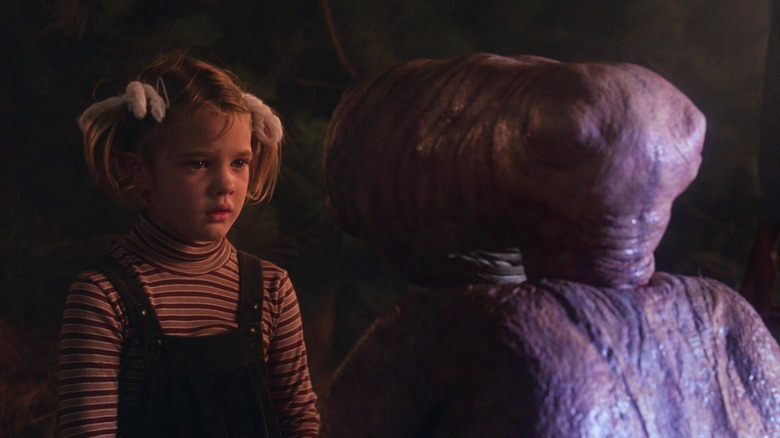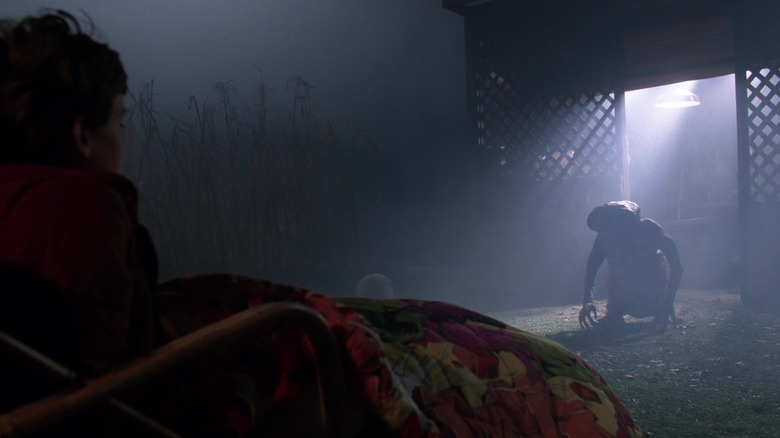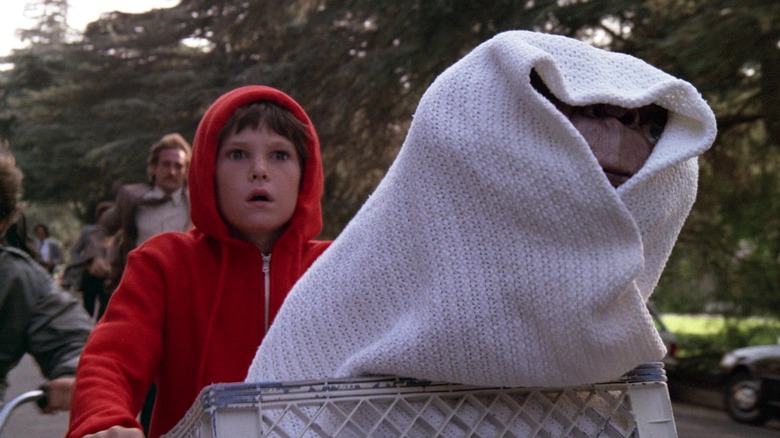
Few directors know how to tap into the magic of childhood wonder as much as Steven Spielberg. In 1982, he once again solidified his reign as the king of blockbusters with his alien adventure “E.T. The Extra-Terrestrial,” drawing in countless audience members — young and old — to gross nearly $800 million worldwide. They were swept away by John Williams’ rousing score and touched by the power of E.T.’s glowing love, as well as the emotional performances from little Henry Thomas and Drew Barrymore. “E.T. The Extra-Terrestrial” is now ranked as Spielberg’s best movie on Rotten Tomatoes, and it’s hard to argue too much with that.
But despite becoming a critical hit and cultural phenomenon, there was some overseas controversy surrounding its release. “E.T.” was originally going to be a horror movie before Spielberg transformed the alien-meets-world story into more family-friendly fare. Be that as it may, Scandinavia felt the movie still retained too much of the scares and tension typical of that genre.
As such, their local ratings board banned children under the age of 11 from watching E.T. phone home on the big screen. This was a bit more harsh than in the U.S., where “E.T. The Extra-Terrestrial” was rated PG for language and thematic elements (including the notorious “penis breath” insult), meaning parental guidance was suggested for younger viewers but not necessary.
E.T. was considered too tense and scary
In 1983, Scandinavian censorship director Gunnel Arrback explained (via UPI) that Spielberg’s celestial fantasy “may cause mental injuries to children aged over 7 but under 11 years” because of its “threatening and frightening mood” and portrayal of “adults as enemies of children” (via Medicine Hat News). I’ll admit, I was a bit scared of E.T. as a child, but there’s nothing harsher than your typical Disney film, which was a major influence on Spielberg’s work. E.T.’s near-death experience and having to say goodbye forever is no different than traumatic moments like Bambi’s mother getting shot by hunters, Dumbo being ripped away from his mother, little boys turning into donkeys in “Pinocchio,” or the fox and the hound going their separate ways. All of these movies were made for children.
“E.T.” does become very intense once the government agents arrive, suddenly shifting the tone of the film from the sweetness and silliness of E.T. experiencing suburban American life — like learning how to spell on the Speak & Spell toy or watching old Westerns on television — to being hunted down by men carrying large guns and thrust into a world of tubes, hazmat suits, and plastic coverings. It’s jarring and frightening to see the emaciated, pale alien on an operating table.
Children still need to learn tough lessons
This idea that younger children cannot handle “E.T.” is ridiculous because Spielberg poured all of his emotional pain, memories, and grief over his parents’ divorce as a young child into the film (he would also use this type of cinematic therapy in “The Fabelmans” decades later). Through the story of Elliott and his little alien buddy, we are reminded that children experience difficult emotions and hardships just as strongly and deeply, even though adults often try to shield them.
It’s heartbreaking when Elliott learns that he must say goodbye to E.T., just as it’s heartbreaking for children to learn that their parents will no longer be together. As children grow, they also learn that adults do not always make the best decisions and have their own problems, whether those lead to breakups or experimenting on an innocent, kindhearted space creature. It’s an important lesson for kids to learn that adults are not infallible, and even dangerous at times.
Spielberg’s refusal to sanitize what would actually happen if an alien came to Eaerth is what makes “E.T.” such a legendary film. Scandinavia was not acting in children’s best interests by trying to put them in a bubble and avoid these heavier themes. Children need to see and understand that big feelings, like loss and abandonment, are okay to feel in a safe way and will not define the rest of their lives. It’s just a part of life that is beyond their control. “E.T.” does not cause mental injuries, but instead creates core memories.




Leave a Reply